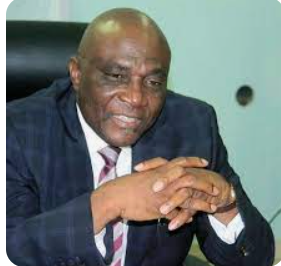The Nigerian presidency has clarified that the country was not overlooked during the recent elections for the United Nations Human Rights Council, stating that its absence from the final ballot was due to strategic diplomatic decisions rather than an act of exclusion. In a statement from Bayo Onanuga, Special Adviser to the President on Information and Strategy, the Nigerian government aimed to rectify misunderstandings surrounding the election results. The statement, titled “Nigeria and the 2024 UN Human Rights Council Elections: Setting the Record Straight,” asserted that Nigeria did not participate as a candidate, similar to its non-participation in the previous election year, 2023.
Onanuga pointed out that Nigeria’s name appearing on some ballots was a mistake made by other nations that had erroneously assumed Nigeria was in the running for election. The UN General Assembly recently elected 18 members to the Human Rights Council for the term spanning from 2025 to 2027, with countries like Benin, Bolivia, and Kenya winning seats. Within the African regional group in particular, candidates such as Benin, Gambia, Kenya, Democratic Republic of the Congo, and Ethiopia successfully filled the five available positions without any competitive elections, as the number of candidates conveniently matched the vacant seats available.
Highlighting Nigeria’s broader strategy, Onanuga emphasized the Nigerian government’s decision to endorse the candidates selected by the African group, thereby reaffirming its commitment to unity within the continent. He asserted that this aligns with President Bola Tinubu’s vision of promoting African cooperation and strength on the global stage. The choice to back endorsed candidates is also seen as an effort to maintain Nigeria’s influential role in the region while advocating for a unified African voice in international discussions regarding rights and governance.
The presidency’s communication also urged the media to exercise caution in their reporting and fact-check their information before dissemination. Onanuga criticized the habit of hastily publishing misleading stories that can tarnish Nigeria’s reputation internationally, calling for a more responsible approach to journalism, particularly concerning the exposure of Nigeria’s international relations and activities. He stressed that the media should have verified claims with the Ministry of Foreign Affairs and the country’s mission in New York before publishing potentially damaging narratives.
Established as an intergovernmental body responsible for promoting and safeguarding human rights globally, the Human Rights Council comprises 47 member states tasked with addressing human rights violations and fostering accountability. The members elected in this cycle will serve for three years, beginning January 1, 2025, succeeding outgoing members from various countries, including Argentina and India. This turnover is critical for shaping the global human rights agenda and addressing pressing issues affecting marginalized populations worldwide.
In summary, Nigeria’s absence from the recent UN Human Rights Council election was articulated as a strategic diplomatic maneuver rather than a snub. The presidency asserted a commitment to supporting African candidates and underscored the importance of unified representation on international forums while advising media outlets to promote accurate representations of the country’s foreign policy endeavors.














